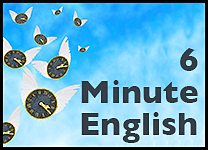Unit 4: English You Need
Exams, news, pronunciation, teachers' tips, learners' questions
Select a unit
- 1 English You Need
- 2 English You Need
- 3 English You Need
- 4 English You Need
- 5 English You Need
- 6 English You Need
- 7 English You Need
- 8 English You Need
- 9 English You Need
- 10 English You Need
- 11 English You Need
- 12 English You Need
- 13 English You Need
- 14 English You Need
- 15 English You Need
- 16 English You Need
- 17 English You Need
- 18 English You Need
- 19 English You Need
- 20 English You Need
- 21 English You Need
- 22 English You Need
- 23 English You Need
- 24 English You Need
- 25 English You Need
- 26 English You Need
- 27 English You Need
- 28 English You Need
- 29 English You Need
- 30 English You Need
Session 5
Welcome to Learners' Questions - the series where we answer your queries about the English language. What will this week's learner question be?
Activity 1
Learners' Questions
Bored and boring
Oum in Cambodia asks: When should I use the words bored and boring?
Watch the video and complete the activity

Dan
Hi guys! Dan here for BBC Learning English with this week's Learner Question. Find out what it is after this.
OK! This week's learner question comes from Oum in Cambodia, who asks "When should I use the words bored and boring?" It's a very good question Oum. Are you listening? Here we go.
Bored and boring are both adjectives. They have the same meaning i.e. not interesting. But they're used in different ways. Consider: I am bored because this TV programme is boring, or, this film is frightening so I am frightened.
In English, when an adjective has an –ed and an -ing form. The -ed form describes the feeling of the person, whereas the -ing form describes the object which makes us feel. I feel bored because the TV is boring. I feel frightened because the film is frightening. But if I stop watching the film, I will not be frightened any more, yet the film will still be frightening.
We can make another difference between bored and boring - one which describes a temporary feeling or a permanent quality. For example: I don't like David. He's boring. Or: I'm bored let's go and have some fun. In the first example I don't like David because he's boring. This describes a permanent quality. David was boring yesterday, he's boring today, and he will probably be boring tomorrow. However, in my second example, I have a temporary feeling. I am bored. If I go and do something fun I won't be bored any more, will I?
I hope that answers your question Oum. Thank you very much for writing to us. If anybody else out there has a Learners' Questions, please email us on: learning.english@bbc.co.uk. Please remember to include Learners' Questions in the subject box and your name and the country where you come from. We can't possibly answer all the questions because there are so, so many, but we do read every single one. And for more information about this or anything else, you can go to our website: bbclearningenglish.com. See you next time on Learners' Questions.
___________________________________________________________________
Did you like that? Why not try these?
__________________________________________________________________________________
Summary
Bored and boring are both adjectives. They mean not interesting.
-ed or -ing
When an adjective has an –ed or –ing form, the –ed form describes the feeling of a person, and the –ing form describes the thing which makes us feel.
I am bored because the TV is boring.
I am frightened because the film is frightening.
It was an interesting talk. I was very interested in what he said.
temporary or permanent
Adjective scan describe temporary feelings or permanent qualities. The difference is in the context.
David is boring.
This describes David's character and can be seen as a permanent feature.
I am bored.
This is a temporary feeling.
To do
Try our quiz to see what you've learned about this topic.
Learners' Questions Quiz
4 Questions
Decide if these sentences are correct or incorrect
Help
Activity
Decide if these sentences are correct or incorrect
Hint
Is the adjective –ed or –ing? What is it describing?Question 1 of 4
Help
Activity
Decide if these sentences are correct or incorrect
Hint
Is the adjective –ed or –ing? What is it describing?Question 2 of 4
Help
Activity
Decide if these sentences are correct or incorrect
Hint
Is the adjective –ed or –ing? What is it describing?Question 3 of 4
Help
Activity
Decide if these sentences are correct or incorrect
Hint
Is the adjective –ed or –ing? What is it describing?Question 4 of 4
Excellent! Great job! Bad luck! You scored:
End of Session 5
Well, that's it for this unit! Join us again in Unit 5 for more Exam Skills, News Review, Pronunciation in the News, The Teachers' Room and Learners' Questions!
Session Vocabulary
Bored and boring
Both are adjectives
-ed or –ing form is important
Can describe temporary or permanent characteristics


